Related Research Articles

Adrienne Cecile Rich was an American poet, essayist and feminist. She was called "one of the most widely read and influential poets of the second half of the 20th century", and was credited with bringing "the oppression of women and lesbians to the forefront of poetic discourse". Rich criticized rigid forms of feminist identities, and valorized what she coined the "lesbian continuum", which is a female continuum of solidarity and creativity that impacts and fills women's lives.
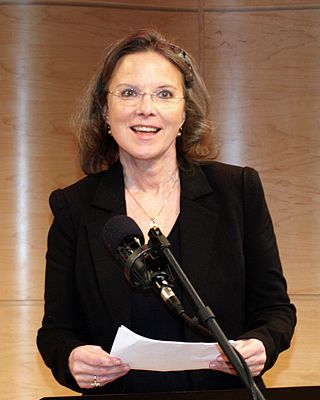
Carolyn Forché is an American poet, editor, professor, translator, and human rights advocate. She has received many awards for her literary work.
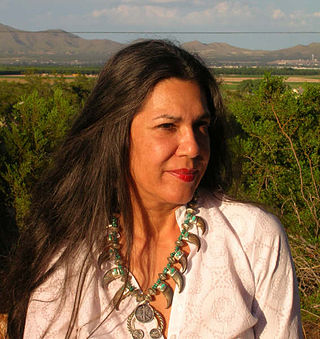
Ana Castillo is a Chicana novelist, poet, short story writer, essayist, editor, playwright, translator and independent scholar. Considered one of the leading voices in Chicana experience, Castillo is most known for her experimental style as a Latina novelist and for her intervention in Chicana feminism known as Xicanisma.

Lucille Clifton was an American poet, writer, and educator from Buffalo, New York. From 1979 to 1985 she was Poet Laureate of Maryland. Clifton was a finalist twice for the Pulitzer Prize for poetry.
Kate Braverman was an American novelist, short-story writer, and poet. Los Angeles was the focus for much of her writing.
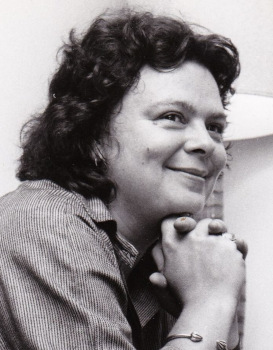
Michelle Carla Cliff was a Jamaican-American author whose notable works included Abeng (1985), No Telephone to Heaven (1987), and Free Enterprise (2004).
Thomas Matthew McGrath, was a celebrated American poet and screenwriter of documentary films.

Chicano poetry is a subgenre of Chicano literature that stems from the cultural consciousness developed in the Chicano Movement. Chicano poetry has its roots in the reclamation of Chicana/o as an identity of empowerment rather than denigration. As a literary field, Chicano poetry emerged in the 1960s and formed its own independent literary current and voice.
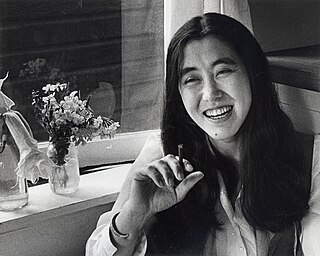
Mei-mei Berssenbrugge is a contemporary poet. Winner of two American Book Awards, her work is often associated with the Language School, the poetry of the New York School, phenomenology, and visual art. She is married to the painter Richard Tuttle, with whom she has frequently collaborated.

Joy Harjo is an American poet, musician, playwright, and author. She served as the 23rd United States Poet Laureate, the first Native American to hold that honor. She was also only the second Poet Laureate Consultant in Poetry to have served three terms. Harjo is a citizen of the Muscogee Nation and belongs to Oce Vpofv. She is an important figure in the second wave of the literary Native American Renaissance of the late 20th century. She studied at the Institute of American Indian Arts, completed her undergraduate degree at University of New Mexico in 1976, and earned an MFA degree at the University of Iowa in its creative writing program.
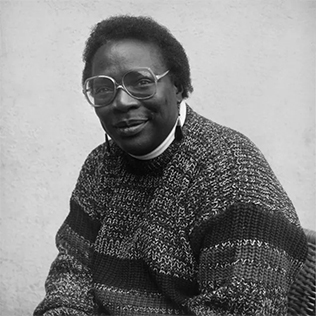
Pat Parker was an African American poet and activist. Both her poetry and her activism drew from her experiences as a Black lesbian feminist. Her poetry spoke about her tough childhood growing up in poverty, dealing with sexual assault, and the murder of a sister. At eighteen, Parker was in an abusive relationship and had a miscarriage after being pushed down a flight of stairs. After two divorces, she came out as a lesbian, "embracing her sexuality" and said she was liberated and "knew no limits when it came to expressing the innermost parts of herself".

Terry Wolverton is an American novelist, memoirist, poet, and editor. Her book Insurgent Muse: Life and Art at the Woman's Building, a memoir published in 2002 by City Lights Books, was named one of the "Best Books of 2002" by the Los Angeles Times, and was the winner of the 2003 Publishing Triangle Judy Grahn Award, and a finalist for the Lambda Literary Award. Her novel-in-poems Embers was a finalist for the PEN USA Litfest Poetry Award and the Lambda Literary Award.
Sesshu Foster is an American poet and novelist.

"On the Pulse of Morning" is a poem by writer and poet Maya Angelou that she read at the first inauguration of President Bill Clinton on January 20, 1993. With her public recitation, Angelou became the second poet in history to read a poem at a presidential inauguration, and the first African American and woman. Angelou's audio recording of the poem won the 1994 Grammy Award in the "Best Spoken Word" category, resulting in more fame and recognition for her previous works, and broadening her appeal.
Maxine Scates is an American poet.

Samiya A. Bashir is a queer American artist, poet, and author. Much of Bashir's poetry explores the intersections of culture, change, and identity through the lens of race, gender, the body and sexuality. She is currently the June Jordan visiting professor at Columbia University of New York. Bashir is the first black woman recipient of the Joseph Brodsky Rome Prize in Literature. She was also the third black woman to serve as tenured professor at Reed College in Portland, Oregon.
Brenda Marie Osbey is an American poet. She served as the Poet Laureate of Louisiana from 2005 to 2007.

Three Weeks in May: Speaking Out On Rape, A Political Art Piece was an extended work of performance art and activism by Suzanne Lacy. The piece took place in Los Angeles, California from May 8 to May 24, 1977.

Amanda S. C. Gorman is an American poet, activist, and model. Her work focuses on issues of oppression, feminism, race and marginalization, as well as the African diaspora. Gorman was the first person to be named National Youth Poet Laureate. She published the poetry book The One for Whom Food Is Not Enough in 2015. She rose to fame in 2021 for writing and delivering her poem "The Hill We Climb" at the inauguration of Joe Biden. Gorman's inauguration poem generated international acclaim and shortly thereafter, two of her books achieved best-seller status, and she obtained a professional management contract.

Susan Sherman is an American author, poet, playwright, and a founder of IKON Magazine. Sherman's poems "convey the different voices of those who have felt the pang of suffering and burning of injustice."
References
- ↑ "Poetry from Zyzzyva". Archived from the original on 2009-10-14. Retrieved 2009-09-13.
- ↑ "Rhyme and Reason : Noted Poet Marge Piercy Mixes Art, Politics". Los Angeles Times . 28 August 1987.
- ↑ "Michelle T. Clinton". 6 October 2000.
- ↑ "Remembering Michele Serros". 14 January 2015.
- ↑ "Rhyme and Reason : Noted Poet Marge Piercy Mixes Art, Politics". Los Angeles Times . 28 August 1987.